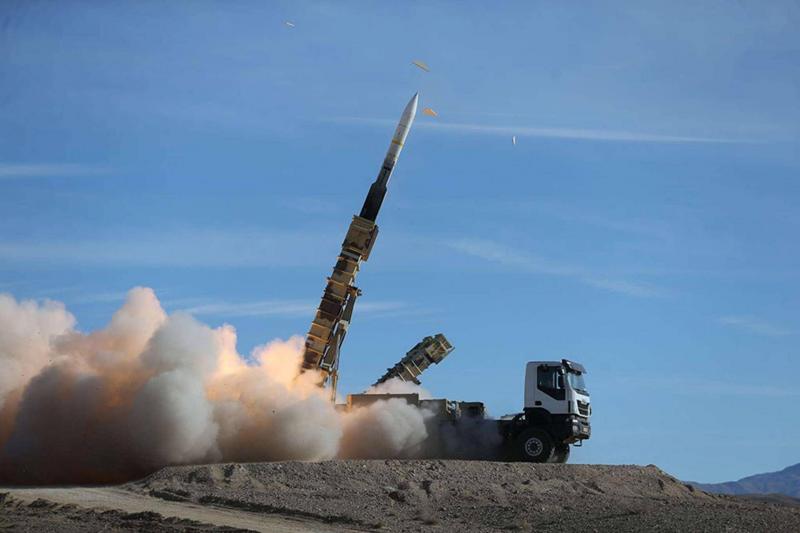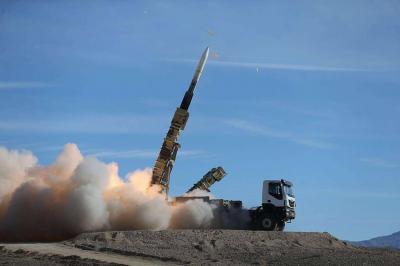Four sources revealed to "Reuters" that European diplomats have informed Iran of the European Union's intention to keep the ballistic missile sanctions set to expire in October, as per the 2015 nuclear agreement. This move could provoke Tehran and prompt a response. The sources attributed the decision to three reasons: Russia's use of Iranian drones in the Ukraine war, the possibility of Iran transferring ballistic missiles to Russia, and to deny Iran the benefits conferred by the nuclear agreement in light of its violations, albeit those occurred after the United States withdrew from the deal.
Maintaining the European sanctions reflects the West's desire to prevent Iran from developing nuclear weapons and to deny it means to achieve that, despite the collapse of the 2015 nuclear agreement from which former U.S. President Donald Trump withdrew in 2018. The agreement between Iran and Britain, China, France, Germany, Russia, and the United States—collectively known as the “5+1”—aimed to limit Tehran’s nuclear program and make it harder for Iran to acquire fissile material necessary for building a nuclear bomb in exchange for relief from economic sanctions.
Due to Trump's withdrawal from the deal and President Joe Biden's failure to revive it, American estimates suggest that Iran could potentially produce enough fissile material for one bomb in about 12 days, compared to one year when the agreement was active. Over the past year, Iranian relations with the West have deteriorated significantly as the agreement has effectively collapsed, prompting Washington and its allies to explore ways to reinstate some form of nuclear restrictions.
Iran denies pursuing nuclear weapons, while the West views Iran's acquisition of such weapons as a threat to Israel and some Gulf states.
**Possible Iranian Response**
A Western diplomat, who requested anonymity, stated, "The Iranians have been clearly informed of the intention to maintain the sanctions, and the question now is what kind of steps Iran might take in response and how to prepare for them." The EU sanctions are set to expire on October 18 under a UN resolution regarding the 2015 nuclear agreement. European countries have urged Iran not to take steps to develop ballistic missiles capable of carrying nuclear weapons, a phrasing that does not entail any mandatory prohibition.
Additionally, the agreement prohibits any party from dealing with Iran in the purchase, sale, or transfer of drones capable of flying over 300 kilometers or their components without prior approval from the UN Security Council, which has never granted such approval. Since 2017, Iran has tested several ballistic missiles and launched several satellites despite the resolution, firing a missile in May with a range of up to 2,000 kilometers.
The increasing defense ties between Tehran and Moscow have raised concerns among European powers, as Western officials claim Russia is using Iranian-made drones in strikes against Ukraine and suggest Iran could supply Russia with ballistic missiles.
It remains unclear whether the three European countries that signed the agreement—Britain, France, and Germany—had informed Iran of their intention to maintain EU sanctions when senior officials from those countries met with Iranian chief nuclear negotiator Ali Baqeri Kani on June 12 in Abu Dhabi. An Iranian official told Reuters, speaking on condition of anonymity, that the EU diplomat "Enrique Mora," who coordinates the discussions related to the 2015 agreement, raised the matter of maintaining the sanctions when he met Baqeri Kani in Doha on June 21, but the Iranian official refused to discuss the matter.
Another Iranian official downplayed the likelihood of sanctions being maintained, asserting that Tehran has made progress in its nuclear and missile programs over the years despite Western sanctions. He stated, also under anonymity, “Maintaining the sanctions, in any way or form, will not impede the progress Iran is making... It is a reminder that one cannot rely on or trust the West.”
The British Foreign Office has not commented on whether the European signatories of the nuclear agreement intend to maintain the sanctions or if they have informed Iran of any decisions. However, a spokesperson for the British Foreign Office indicated that the discussions on June 12 in Abu Dhabi "touched on a number of issues that concern us regarding Iran’s behavior, including its ongoing nuclear escalation." Similar statements regarding the discussions were made by the French and German foreign ministries.
A European diplomat mentioned that Mora has begun laying the legal groundwork for maintaining the sanctions, a decision requiring the approval of all 27 EU member states. Sources indicated that this matter has not yet been discussed among all EU countries. The diplomat, referencing the Security Council resolution supporting the nuclear agreement, said, "The lifting of sanctions was based on the principle of respecting Resolution 2231... That has not happened, hence there is a discussion with the Iranians to clarify that we will not lift those sanctions."




